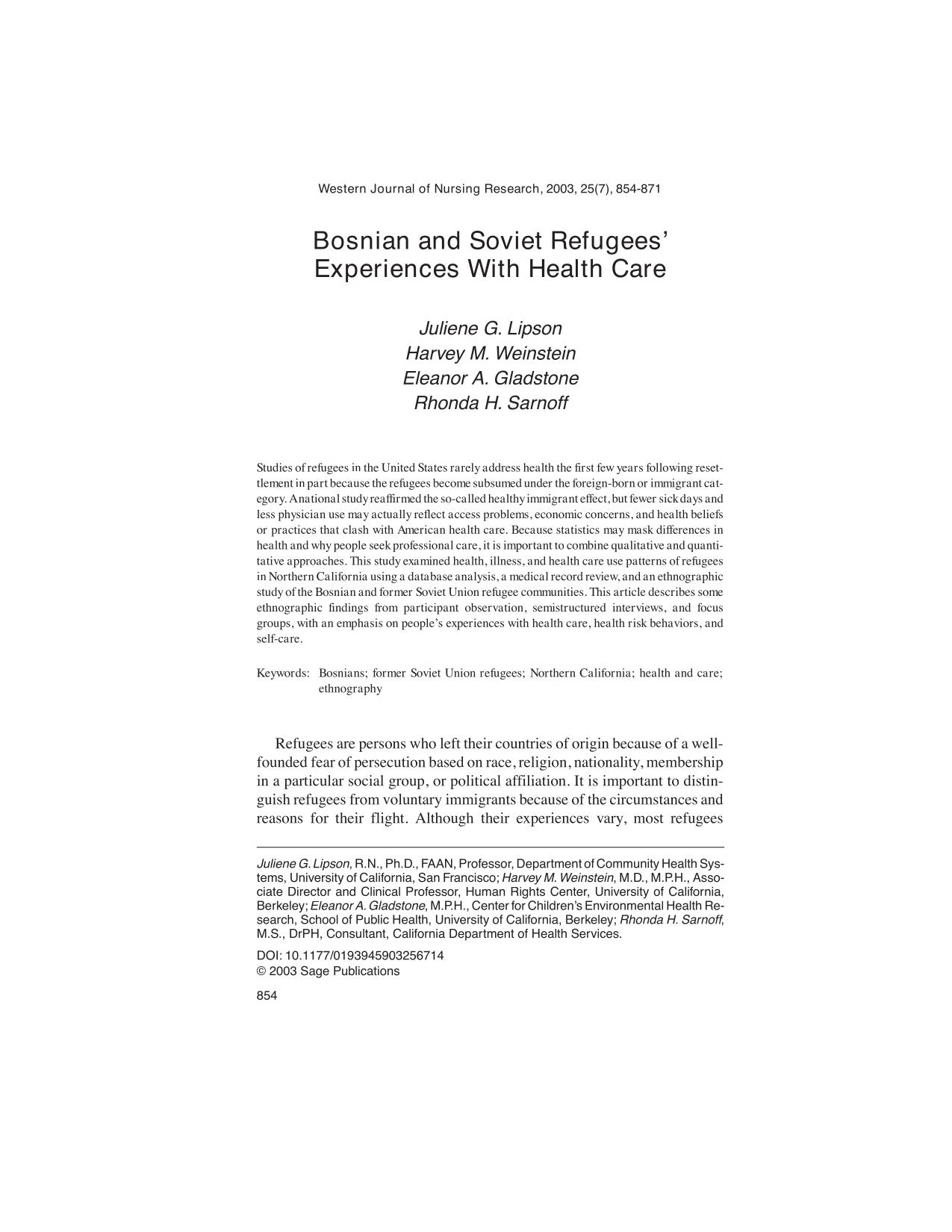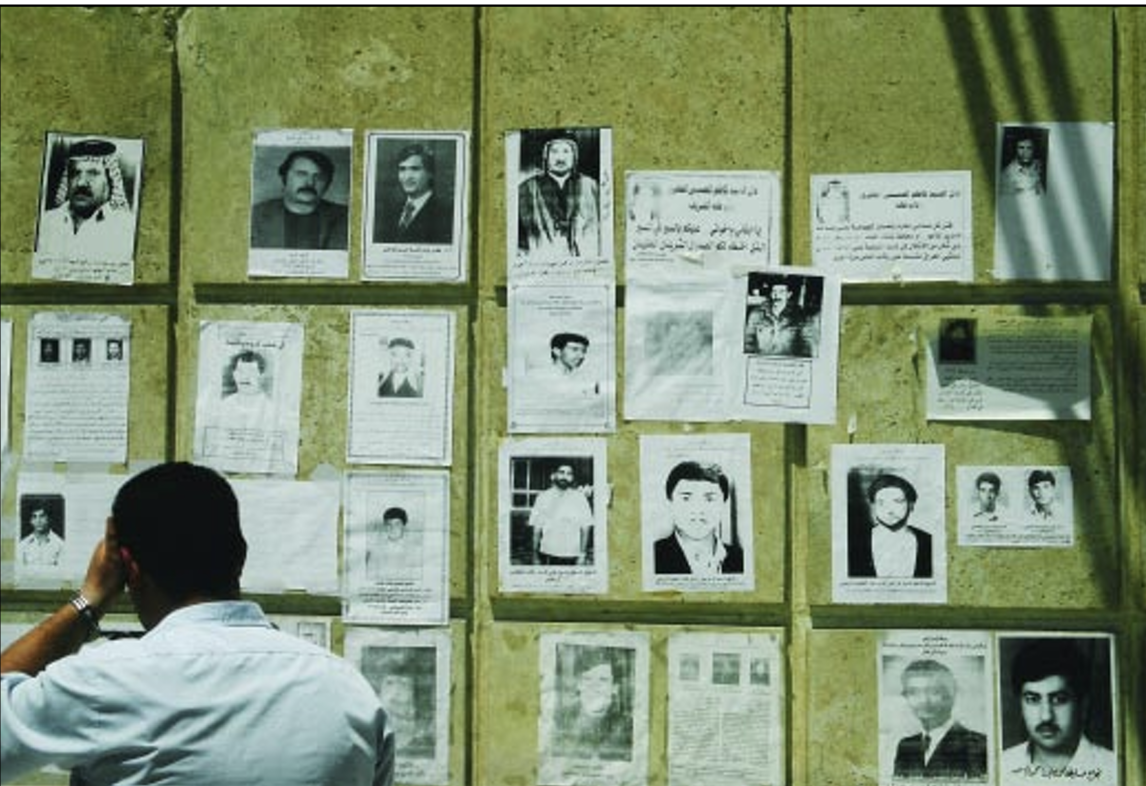Bosnian and Soviet Refugees’ Experiences with Health Care
Download ReportSummary
Studies of refugees in the United States rarely address health the first few years following resettlement in part because the refugees become subsumed under the foreign-born or immigrant category. A national study reaffirmed the so-called healthy immigrant effect, but fewer sick days and less physician use may actually reflect access problems, economic concerns, and health beliefs or practices that clash with American health care. Because statistics may mask differences in health and why people seek professional care, it is important to combine qualitative and quantitative approaches. This study examined health, illness, and health care use patterns of refugees in Northern California using a database analysis, a medical record review, and an ethnographic study of the Bosnian and former Soviet Union refugee communities. This article describes some ethnographic findings from participant observation, semistructured interviews, and focus groups, with an emphasis on people’s experiences with health care, health risk behaviors, and self-care.

